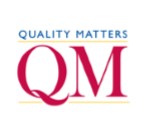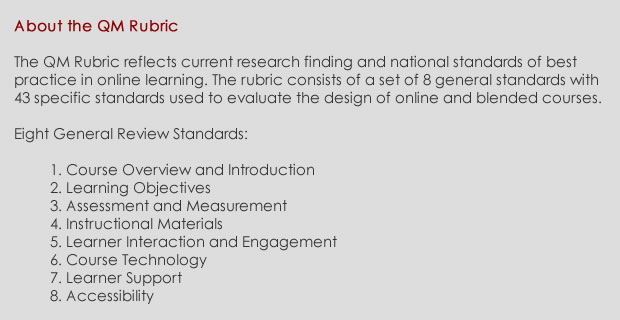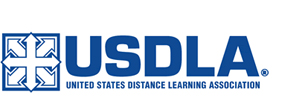There are many organizations that offer rubrics and scorecards for use in the design and support of blended and online courses. Below are a few that MIT Educational Technology recommends based on classes we’ve attended.
 Quality Matters (QM) is a nationally recognized, faculty-centered, peer review process designed to certify the quality of online courses and online components. Colleges and universities across the U.S. and globally use the tools in developing, maintaining and reviewing their fully online and blended courses, and in training their faculty. Submission of courses for review by certified Peer Reviewers allows for continuous improvement of online pedagogies. More than 800 colleges and universities subscribe to Quality Matters. Sandra Butler, Associate VP of Educational Technology, and Blanche Bryant, Manager of Instructional Technology and Design Services, started the QM certification process last summer with two classes under their belt. Sandra notes, “the classes on learning how to apply the QM Rubric are very practical and relevant. As students, we examine real courses at different institutions and then compare our notes with fellow students and QM review boards. There is no right or wrong answer. However, feedback on how to improve a course must be supported by research and the QM Rubric. It’s a great exercise to keep us on our toes.”
Quality Matters (QM) is a nationally recognized, faculty-centered, peer review process designed to certify the quality of online courses and online components. Colleges and universities across the U.S. and globally use the tools in developing, maintaining and reviewing their fully online and blended courses, and in training their faculty. Submission of courses for review by certified Peer Reviewers allows for continuous improvement of online pedagogies. More than 800 colleges and universities subscribe to Quality Matters. Sandra Butler, Associate VP of Educational Technology, and Blanche Bryant, Manager of Instructional Technology and Design Services, started the QM certification process last summer with two classes under their belt. Sandra notes, “the classes on learning how to apply the QM Rubric are very practical and relevant. As students, we examine real courses at different institutions and then compare our notes with fellow students and QM review boards. There is no right or wrong answer. However, feedback on how to improve a course must be supported by research and the QM Rubric. It’s a great exercise to keep us on our toes.”

 The Online Learning Consortium (OLC) is a leading professional organization devoted to advancing quality online learning by providing professional development, instruction, best practice publications and guidance to educators, online learning professionals and organizations around the world. The classes are different than QM in that they focused more at the institutional level. In October, Sandra attended the 1st Annual HBCU Summit hosted by the Online Learning Consortium. The Summit was designed specifically for the HBCU community and focused on e-Learning issues faced by historically black colleges and universities. Sandra Butler commented that, “Many of the issues discussed were not unique to HBCUs. However, it was nice to be in an intimate group setting with peers. Three issues continued to rise to the top in discussions: staffing, funding, and time.”
The Online Learning Consortium (OLC) is a leading professional organization devoted to advancing quality online learning by providing professional development, instruction, best practice publications and guidance to educators, online learning professionals and organizations around the world. The classes are different than QM in that they focused more at the institutional level. In October, Sandra attended the 1st Annual HBCU Summit hosted by the Online Learning Consortium. The Summit was designed specifically for the HBCU community and focused on e-Learning issues faced by historically black colleges and universities. Sandra Butler commented that, “Many of the issues discussed were not unique to HBCUs. However, it was nice to be in an intimate group setting with peers. Three issues continued to rise to the top in discussions: staffing, funding, and time.” The United States Distance Learning Association is a nonprofit Distance Learning association that supports Distance Learning research, development and praxis across the complete arena of education, training and communications.The USDLA was founded in 1987, on the premise of creating a powerful alliance to meet the growing education and training needs of learning communities, integrating new concepts of communication technologies with learning, in broad multidisciplinary applications.
The United States Distance Learning Association is a nonprofit Distance Learning association that supports Distance Learning research, development and praxis across the complete arena of education, training and communications.The USDLA was founded in 1987, on the premise of creating a powerful alliance to meet the growing education and training needs of learning communities, integrating new concepts of communication technologies with learning, in broad multidisciplinary applications.